Sustainability July 17, 2019
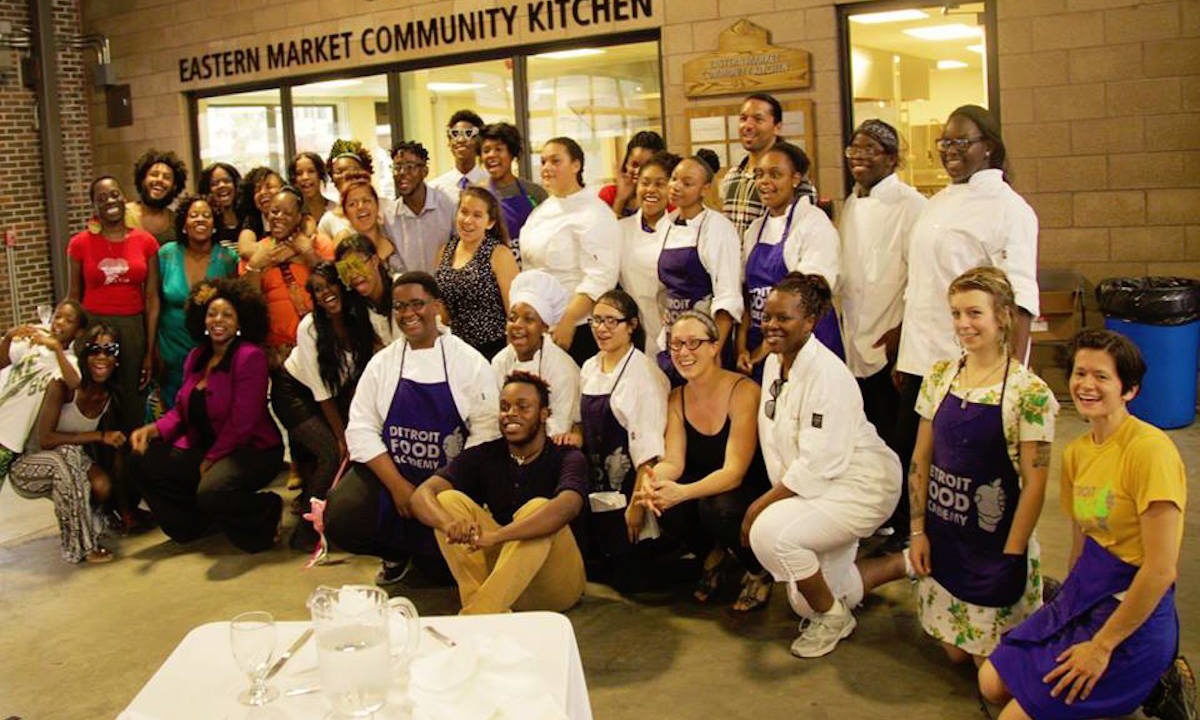

After graduating from the University of Michigan with degrees in Sociology and Psychology, Angela Abiodun taught English to seventh and tenth graders in Louisiana. It wasn’t long, however, before she returned to her hometown of Detroit and earned her Masters in Educational Sciences. With a newly minted yoga practice and a deep knowledge of food as a form of holistic healing, it was a natural progression for Angela to become the Director of Programs at Detroit Food Academy whose mission is to forge a healthy relationship between city kids and their food.
When our organization started, most of the food programming that existed was focused on younger youth, so we wanted to engage a slightly different demographic. On the business side of things, having high school students work behind booths at markets to gain business experience was more feasible for us to organize. Doing so has allowed for a lot of programmatic success that in turn created the space for our students to teach peers and/or younger students the skills they learned.
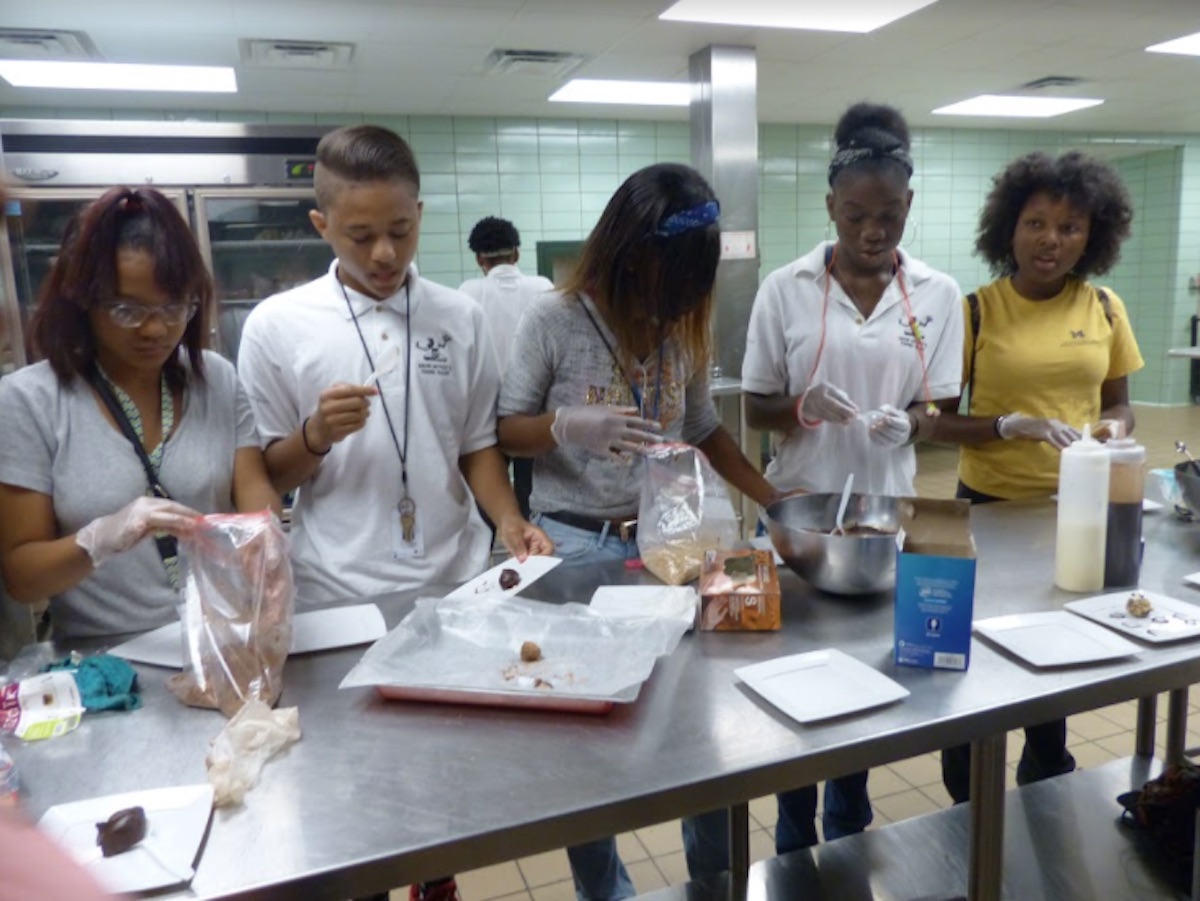

via Detroit Food Academy
A triple bottom line food business model is one that encourages sustainability through considering and being beneficial to plant, people and profit in the creation of the business. In a capitalist environment, profit tends to hold weight over everything else; this model encourages accountability through understanding the other factors that impact success.
Detroit is a beautiful example of the transition of an industrial city in a developing technological world. The people who remained in the city during that shift are the epitome of resilient and resistant. Right now is a interesting turning point, because many people are getting hip to the potential of the city and it’s developing in a very stereotypical, yet harmful, way, not acknowledging that the people who are benefiting the least from this rejuvenation are the ones that maintained the city in the most difficult moments. Progress is the present and the future for Detroit, because as the motto says, “we hope for better things, it will arise from the ashes.” We have the wherewithal to make it happen, but I believe it’s important to ensure that the progress is intentional and not on the backs of maintaining systems of oppression.
There’s slight variation in the number of youth participating every year, but last year we had 248 youths, and we are looking forward to an increase this year.
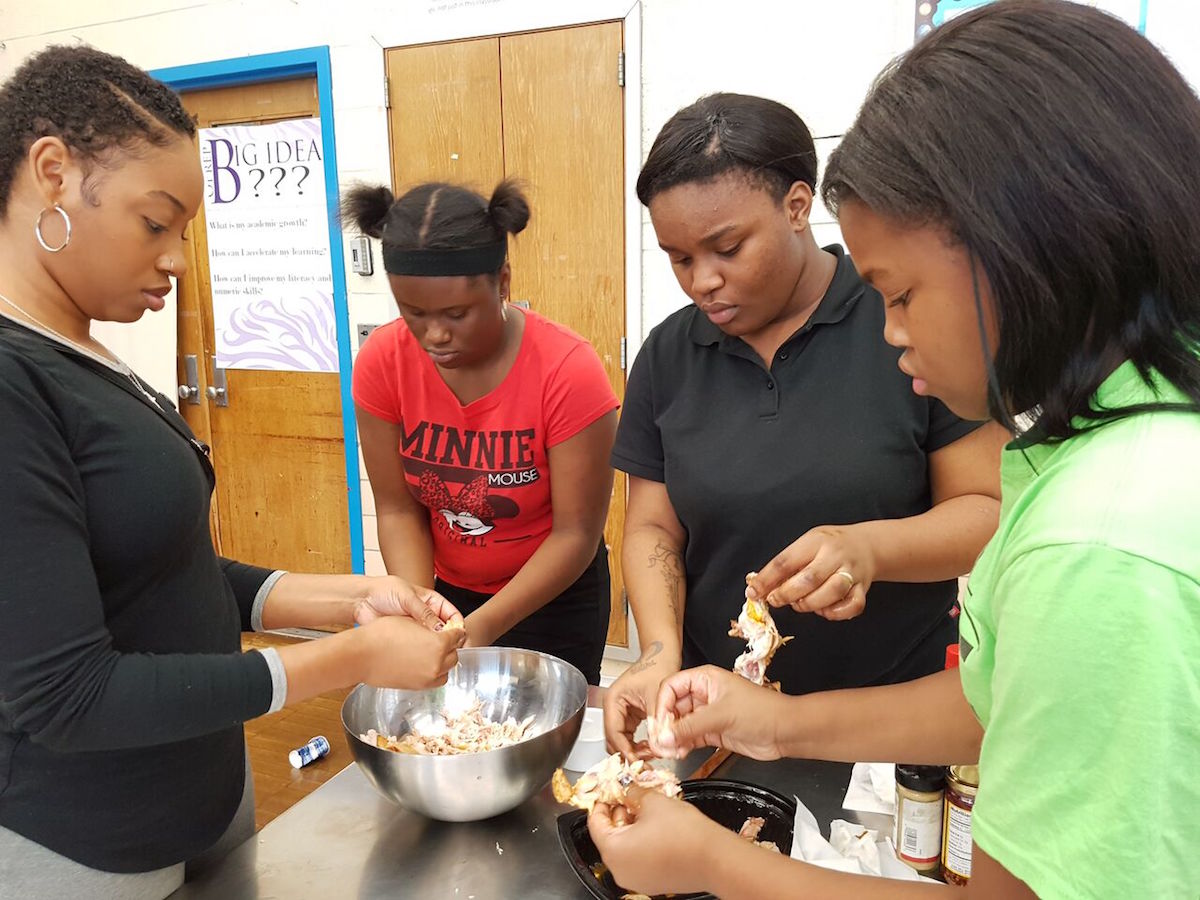

Detroit Food Academy
Our youth are learning what it takes to be a leader through weekly taking on the role of head/sous chef, which has them make all decisions (outside of how the recipe instructs them) about the meal being prepared. They continue to develop their leadership capacity in the Advanced cohort through leading workshops with peers and youth. They are learning concrete culinary skills, including cutting, chopping, baking, cooking, and more. They also learn the foundational steps of business creation and the dedication and perseverance necessary to see a business come to fruition. Problem solving is actively experienced, whether it’s through fixing a recipe while cooking, finding successful replacement ingredients to meet the needs of our group, or refining and marketing products.
An understanding of food can lead to an understanding of self. On the culinary side, it encourages you to face your personal fears, explore options, take risks, and develop your voice. On the agricultural side, it shows the necessity of diversity to sustain the world, the power of growing your own food, and deepens one’s connection to the earth and nature. All of these can lead to fuller, deeper and more connected ways of understanding self, potentially impacting the students’ mindsets and the choices they make in the future.
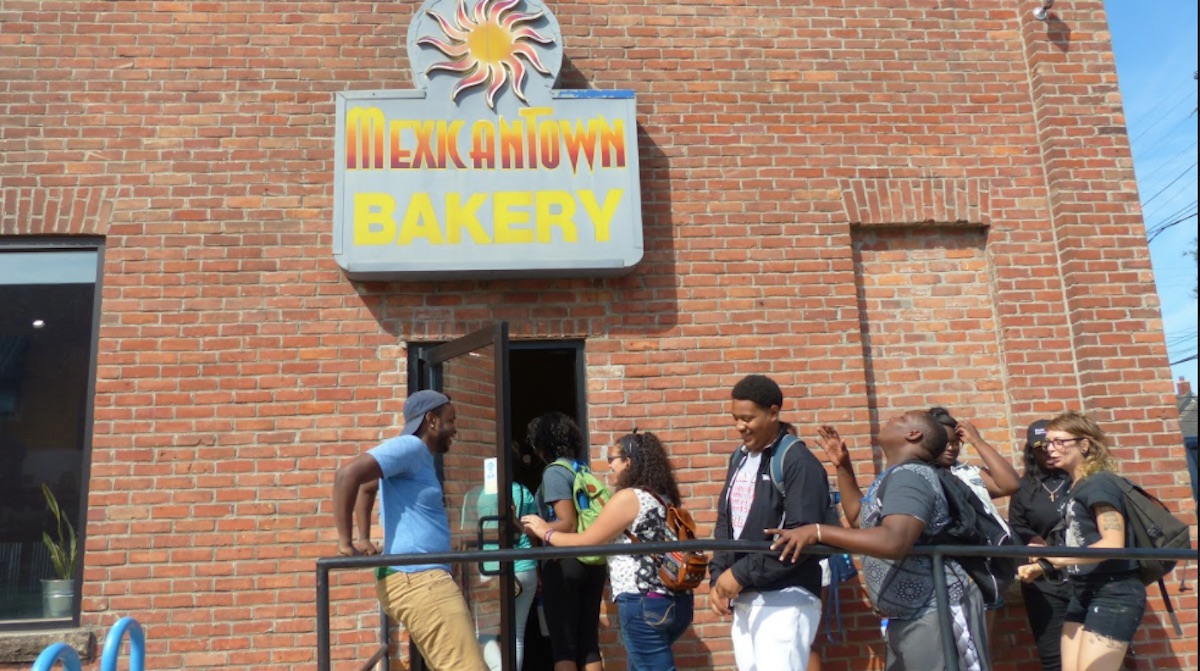

via Detroit Food Academy
One of our greatest success stories is Brandon. He started at one of our original cohorts, Cody High School, and then joined us in our summer program. Brandon is incredibly skilled and after his summer with us, joined staff as a Junior Classroom Coordinator. During his first year on staff, he was committed to going to culinary school and this year we’ve developed a scholarship fund, with the support of local chefs and a player from the Detroit Lions. We are being helped in financially supporting his culinary arts college dreams, and the future college dreams of our students.
Once people see our programming in action, they’re really excited. I’ve had conversations with people in the city who don’t know we exist, so it’s important to ensure our story is shared more broadly, which is something we’re working on organizationally.
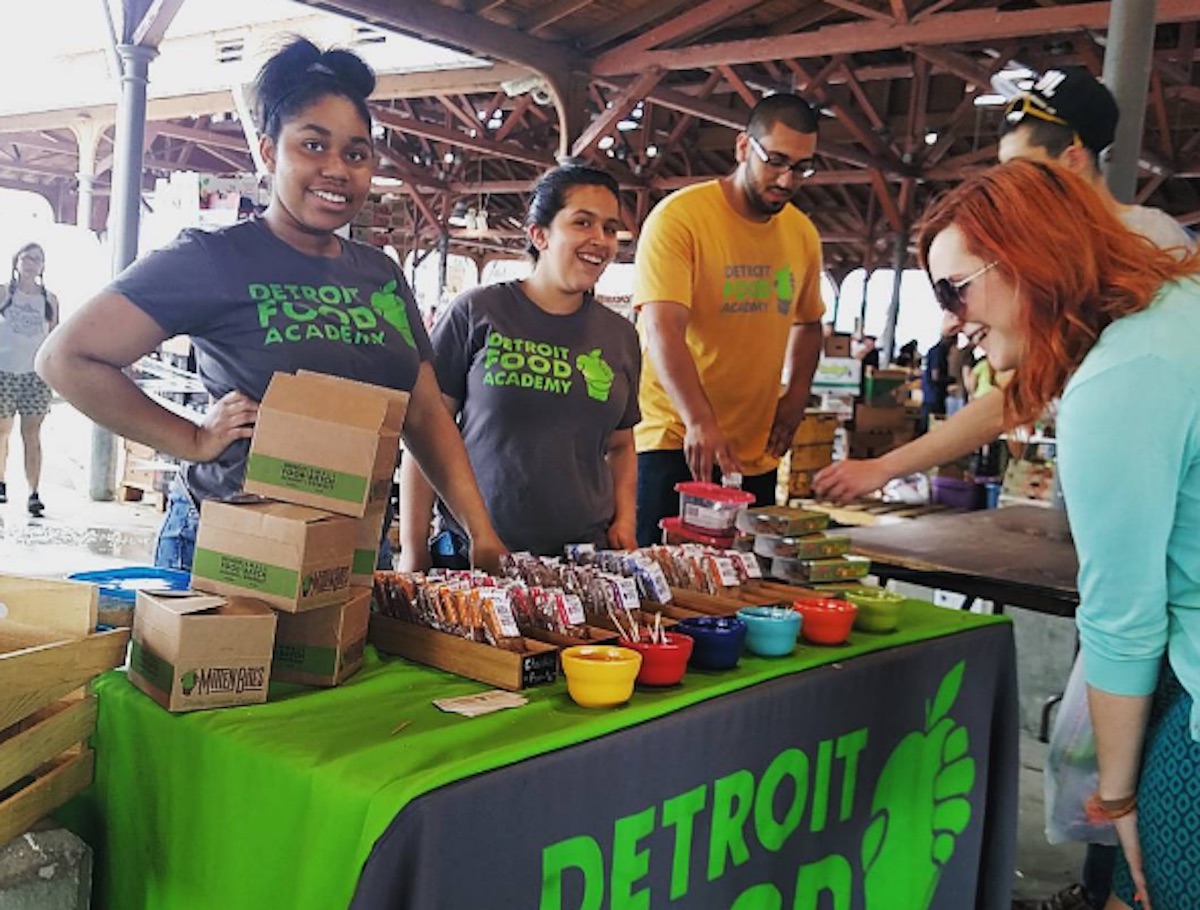

via Detroit Food Academy
Our immediate future plan is to get better at telling and sharing our story, continuing to develop our capacity to support youth that outgrow the program, and refining our programming.
They always teach me about the power of collaboration. In an organization that is built to meet their needs, ensuring that they are involved in as much of the process as possible, including idea creation, is what allows us to successfully accomplish anything.
Definitely, but the success we’ve seen has been due to the relationships we have. We’ve created a very organic and responsive model, which can be unsettling, but also creates very fertile soil for opportunities to grow.